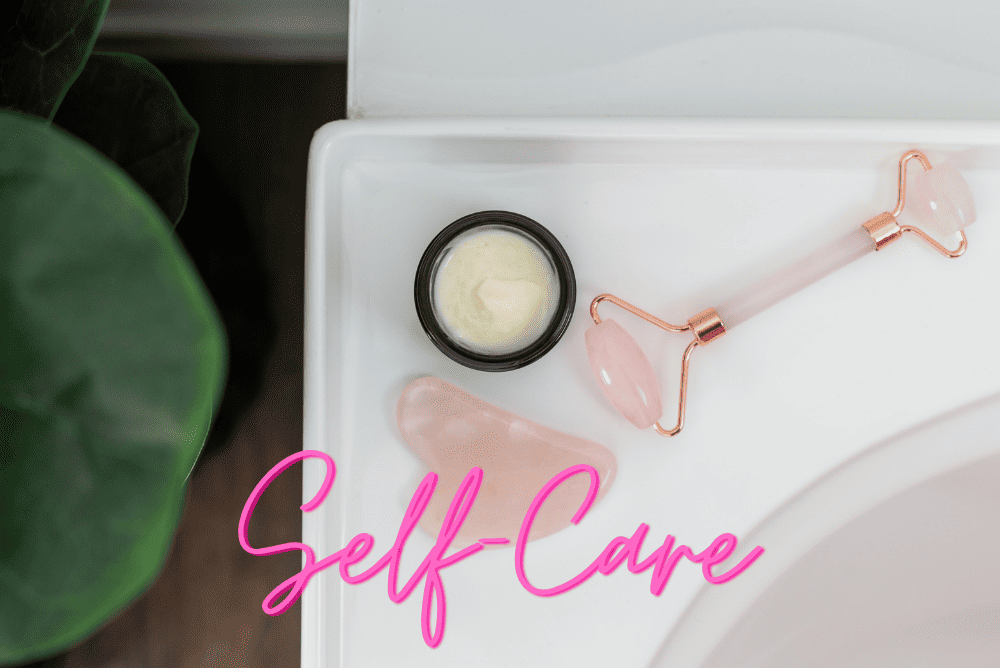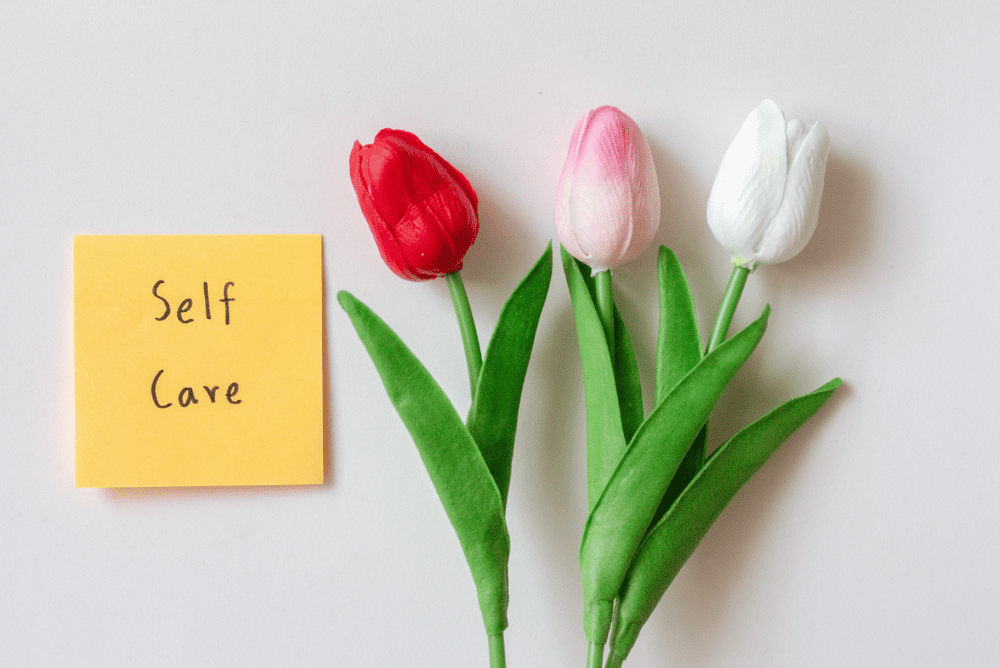Last updated on November 11th, 2023
Self-care is more than just bubble baths and face masks. It’s the practice of taking care of yourself on all levels—physically, mentally, and emotionally. It’s about understanding that to be the best version of yourself, you must first take care of yourself.
In this fast-paced world, it’s easy to get caught up in the demands of daily life and neglect our own needs. But when we neglect self-care, we’re neglecting our overall well-being. And that can lead to physical and mental exhaustion, decreased productivity, and even serious health issues.
In this blog, we’ll explore the different forms of self-care and discuss the importance of incorporating them into our daily lives.
From physical self-care practices like exercise and healthy eating to mental and emotional self-care practices like mindfulness and self-compassion, we’ll cover the essential self-care practices that can help you become the best version of yourself.
Self-care is not a one-time action, it’s a continuous journey. And it’s a journey worth taking. Join us as we talk about different ways to take care of yourself that can make you happier, healthier, and more fulfilled.
What are Self-Care Practices
Self-care practices are things that people do to take care of their mental, physical, and emotional health. They can include:
Physical self-care practices, such as exercise, healthy eating, sleep, and personal hygiene.
Mental and emotional self-care practices, such as mindfulness, meditation, journaling, gratitude, and setting boundaries.
Social and relationship self-care practices, such as maintaining social connections, practicing forgiveness, building and nurturing relationships, and seeking professional help if needed.
Spirituality and personal development self-care practices, such as engaging in hobbies and activities you enjoy, prioritizing self-compassion, exploring spirituality and personal beliefs, and setting and achieving personal goals.
Relaxation and stress-reduction practices, such as yoga, deep breathing, or taking a warm bath,
Self-care habits can be different for each person, depending on their preferences and needs, but the goal is to improve one’s overall health and sense of balance.
Importance of Self-Care for Overall Well-Being
Self-care is the practice of taking care of your physical, mental, and emotional health. It includes a wide range of activities that help improve overall well-being and promote a sense of balance in life.
From taking care of our physical health through exercise and a healthy diet, to addressing our mental and emotional needs through mindfulness and self-compassion, self-care is an essential aspect of living a happy and fulfilled life.
The importance of self-care cannot be overstated. In today’s fast-paced world, it’s all too easy to get caught up in the demands of daily life and neglect our own needs.
But when we neglect self-care, we’re neglecting our overall well-being. This can make you tired physically and mentally, make you less productive, and even cause serious health problems.
Self-care is not a luxury; it’s a necessity. It’s about making ourselves a priority and taking the time to invest in our own well-being. By taking care of ourselves, we’re better equipped to handle the demands of daily life and make a positive impact on the world around us.
Self-care routine that can help you become a better version of yourself
Physical Self-Care Practices
Physical self-care practices are essential for maintaining good health and overall well-being.
Exercise and physical activity: Regular exercise is important for staying fit, improving heart health, and lowering the risk of developing chronic diseases. Regular physical activity can also improve mood, lower stress, and make life in general better. Regular exercise is important for keeping your body and mind healthy and for your overall well-being. It has been shown to enhance sleep, uplift the mood, and increase longevity. The current recommendation from medical professionals is to engage in at least 2.5 hours of exercise per week.
Healthy diet and nutrition: Eating a balanced diet that’s rich in fruits, vegetables, and whole grains can help maintain good health and prevent chronic diseases. Proper nutrition can also boost energy levels, improve moods, and promote overall well-being. Experiment with different diets and take note of the effects on your mood, sleep, energy, and focus.
Getting enough sleep: Getting enough quality sleep is essential for physical and mental recovery. Sleep is important for your body and mind to heal, and it’s important to set a regular time to sleep. A good night’s sleep can improve mood, boost cognitive function, and reduce the risk of chronic health conditions. Setting up and sticking to a regular sleep schedule is important for staying healthy. It is recommended that everyone get 7 to 8 hours of sleep per night to feel rested; otherwise, you will feel tired throughout the week.
Personal hygiene and grooming: Personal hygiene and grooming are essential for maintaining good health and promoting self-confidence. Keeping up with personal hygiene can improve overall well-being, boost mood, and reduce the risk of infection. Keeping up with personal hygiene can have a positive impact on your mental health. A good shower, shave, and floss can boost your mood and improve your attitude.
.
Mental and Emotional Self-Care Practices
Taking care of your mental and emotional health is important for your overall health and well-being.
Mindfulness and meditation: Mindfulness and meditation can help reduce stress, improve focus, and promote a sense of calm. These practices can help you become more aware of your thoughts and feelings, which will make it easier for you to control them.
Gratitude and positive thinking: Focusing on gratitude and positive thinking can improve overall well-being, boost mood, and reduce stress. Expressing gratitude can have a positive impact on your emotional well-being and create hope and contentment even in difficult circumstances.. When we focus on the things we’re thankful for, it can be easier to find joy in the present moment and have a more positive outlook on life.
Journaling and creative expression: Journaling and creative expression can be effective ways to process thoughts and emotions. It gives us a safe place to think about and talk about our thoughts and feelings, and it can also help us express ourselves.
Setting boundaries and saying no: Setting boundaries and saying no is an important aspect of self-care. It means taking responsibility for our own needs and not sacrificing ourselves for the sake of others. It’s important to learn to set limits and put ourselves first in order to maintain good mental and emotional health.
Taking time for yourself: It’s also important to spend some time alone to recharge and focus on yourself. It is essential to make time for yourself, whether it’s through reading, journaling, or simply taking a walk.
Social and Relationship Self-Care Practices
Social and relationship self-care practices are essential for maintaining good relationships and overall well-being.
Maintaining social connections: Strong social connections can improve overall well-being, reduce stress, and promote a sense of belonging. It’s important to nurture relationships with friends and family, and to make time for social activities that promote connection and community. Spending time with others: Interacting with others is important for maintaining emotional health. The amount of time required varies from person to person.
Practicing forgiveness and letting go of grudges: Holding grudges and resentment can be emotionally taxing and can harm our relationships. Forgiveness and letting go of grudges can help improve our emotional well-being and our relationships with others. Forgiving someone can have a big impact on your physical and emotional health and free your mind from negative thoughts that keep coming back.
Building and nurturing relationships: Building and nurturing healthy relationships with others can improve overall well-being, boost mood, and reduce stress. It’s important to make an effort to build strong, positive relationships with the people in our lives. Interacting with others is important for maintaining emotional health. The amount of time required varies from person to person.
Maintaining social connections: Strong social connections can improve overall well-being, reduce stress, and promote a sense of belonging
Seeking professional help if needed: If you’re struggling with social or relationship issues, it’s important to seek professional help. A therapist or counselor can provide guidance and support to help you work through any challenges you may be facing.
Spirituality and Personal Development Self-Care Practices
Spirituality and personal development self-care practices are essential for maintaining overall well-being and personal growth.
Engaging in hobbies and activities you enjoy: Engaging in activities you enjoy can promote well-being, reduce stress, and improve overall happiness. It’s important to make time for hobbies and activities that bring joy and fulfillment.
Prioritizing self-compassion: Treating yourself with kindness and understanding can improve your self-esteem and overall well-being. Self-compassion helps us to be more understanding and less harsh on ourselves when we make mistakes or fall short of our expectations. Treating yourself with kindness and understanding can improve your self-esteem and overall well-being.
Exploring spirituality and personal beliefs: Exploring our spirituality and personal beliefs can provide a sense of purpose and meaning in life. It can also help us find inner peace and a deeper understanding of ourselves and the world around us.
Setting and achieving personal goals: Setting and achieving personal goals can provide a sense of accomplishment and purpose. It’s important to set realistic, achievable goals and to make an effort to work towards them in order to improve self-esteem and overall well-being.
Conclusion- Self-Care Practices to Perform
Self-care is the practice of taking care of your physical, mental, and emotional health. It includes a lot of different things that help improve overall health and make life feel more balanced.
From taking care of our physical health through exercise and a healthy diet, to addressing our mental and emotional needs through mindfulness and self-compassion, self-care is an essential aspect of living a happy and fulfilled life.
Incorporating self-care practices into daily life is crucial for maintaining overall well-being. Regular exercise, healthy eating, and getting enough sleep are essential for maintaining physical health, while mindfulness, gratitude, and setting boundaries are important for maintaining mental and emotional health.
Building and maintaining social connections, practicing forgiveness, and seeking professional help if needed are important for maintaining social and relationship well-being.
Engaging in hobbies and activities you enjoy, prioritizing self-compassion, exploring spirituality and personal beliefs, and setting and achieving personal goals are important for maintaining overall well-being and personal growth.
Self-care practices have numerous benefits for overall well-being. They can help reduce stress, improve physical health, boost mood and cognitive function, and promote a sense of balance in life.
They can also help us to better understand and manage our thoughts and emotions, and to build stronger, more positive relationships with others.
Making self-care a priority is essential for maintaining good health and leading a happy and fulfilled life. It is important to set aside time each day to focus on self-care, whether it’s through exercise, mindfulness, social connections, or personal growth activities.
Remember, self-care is not a luxury, it’s a necessity. By taking care of ourselves, we’re better equipped to handle the demands of daily life and make a positive impact on the world around us.
At Pheelpretty.com, we understand the importance of self-care and the impact it can have on our overall well-being. That’s why we’ve created a wide range of resources to help you take control of your mindset transformation journey.
We believe that self-care is not a one-time action, it’s a continuous journey. Our resources are designed to help you improve your self-confidence, self-esteem, and overall well-being.
Don’t miss out on this opportunity to take control of your mindset transformation journey. Sign up now at Pheelpretty.com and start feeling your best today!




